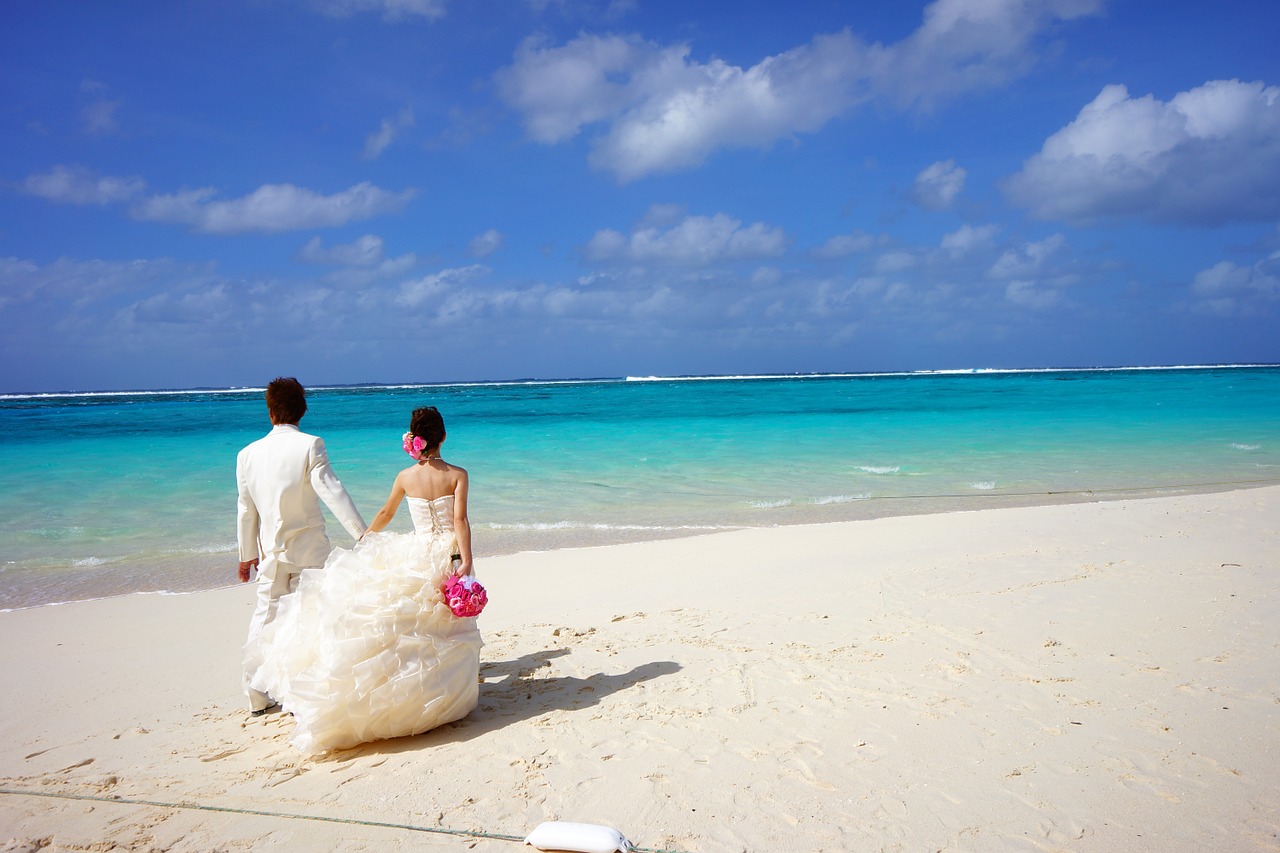
Saying “I Do” in Morocco and riding off into the sunset on a camel, or planning a Paris elopement complete with a photography package of you and your beloved swooning around the City of Lights, sounds like a dream for tying the knot. Destination weddings are growing in popularity, but they aren’t just for the adventurous or ultra-romantic. Many times, getting married abroad is the best option for budget-conscious couples as well. A wedding at a Mexican resort can cost just $2000, and the more guests who fly in, the better the deals you’ll get on rooms and service.
Whatever your reason, know that planning an overseas wedding will require extra documentation and notarizations, possible blood tests, residency requirements, and translation of your documents into the local language for your marriage to be legal.
The process itself is an adventure in patience and commitment as you jump through bureaucratic hoops. What better way to test the mettle of your relationship than to plan your marriage abroad! If that doesn’t daunt you, read on for everything you need to know to start planning your dream wedding.
Will my Overseas Marriage be Valid in the U.S.?
First, know that you can neither marry at any U.S. Embassy or Consulate office, nor can any U.S. diplomatic personnel preside over your marriage. It must be performed by local legal authorities in the country in which you’ll have your wedding.
The U.S. recognizes the validity of a marriage performed overseas if it meets the requirements and laws of the country in which it was performed. Since every country has different regulations, you’ll need to do your homework before jet-setting off to Tuscany for that intimate vineyard ceremony. But don’t worry, we’re here to help.
The following list of tips and considerations will help you navigate the often confusing process of getting married abroad, as well as the bureaucracy of immigration requirements for a foreign spouse.
Plan Ahead
Getting married abroad does take more planning, so give yourself at least three months’ time to be able to get all the necessary documents in order, and meet potential residency requirements.
For example, you and your partner must reside in France for 30 days before a civil union is considered valid, but you can get married the day you arrive in South Africa.
Consider whether you want to have a civil and/or a religious ceremony. In some countries, like Portugal, you must be a citizen to have a civil marriage. Some people choose to have their civil marriage at home, and a religious ceremony abroad.
However, this brings in extra considerations as well since priests, rabbis and other religious officials have their own their own rules for marriage (i.e. rabbis in Scotland won’t perform interfaith marriages).
Basic Documentation Needed for Getting Married Abroad

You will need a valid passport at the time of your marriage abroad. With all the other official and legal documentation needed, this item often gets overlooked!
Double check the expiration date on your passport. Most countries require your passport to be valid for six months after your date of arrival, so if yours does not meet that criteria, it is best to renew now. You can find out how to apply for a first time passport here, or renew your passport here.
Remember to check if you will need a visa for your wedding trip. Some countries that might not require you to have a visa if you are visiting for tourism will insist that you have a visa if you are coming to get married! This is especially likely to be the case if you are going to be married to a citizen of that country.
You will need to supply birth certificates, as well as divorce or death certificates when applicable to prove the legal dissolution of any previous marriages. Many times you will need to supply an Affidavit of Eligibility to Marry to that you obtain from a U.S. embassy or consulate. It provides proof of legal capacity to marry in certain civil union countries.
You can find affidavits on the foreign embassy website of the country you plan to marry in, and then have it notarized by a U.S. embassy or consulate. Some countries will also require the document be notarized by a U.S. embassy within their country.
Oh wait, there’s more!
Some countries require you to “post the banns” a couple of weeks before your wedding date. This is an advertisement of your wedding in the local newspaper to allow adequate time for a person to object to the union! In most countries, though, this practice is waived for U.S. citizens, but it is still good to be aware of it. Greece, a gorgeous and ever-popular elopement destination still adheres to this archaic law.
Certain Mexican cities require health documents from a Mexican doctor, so be aware that some requirements vary by county or city as well as the country.
A translator is strongly advised if you plan to marry in France since the ceremony will be performed in French.
Oh, and no – Iceland cannot guarantee the color or appearance of the Northern Lights as your ceremony backdrop.
Feeling overwhelmed with all the possible variations and regulations? Many couples opt for a wedding coordinator, who knows the ropes inside and out, and can provide step-by-step assistance.
Who to Contact About Getting Married Abroad
Visit the Department of State’s website for the contact information from their list of foreign embassies and consulates. If you know the country you want to get married in, visit their tourist information bureau or the embassy’s website for specific marriage requirements.
Another recommendation is to contact the Attorney General of your state to confirm what documentation you need for your marriage abroad to be valid in the U.S. upon your return.

How to Obtain a Visa for a Foreign Spouse
The U.S. Citizenship and Immigration Services website clearly outlines exactly what documents you need to bring your foreign spouse to live as a permanent resident in the U.S. depending on your situation. There are different forms to complete that depend on if you are a U.S. Citizen or permanent resident (“green card” holder).
The specific documents you’ll need to get a visa to bring your foreign spouse to the U.S. will vary according to your situation, but in general, you’ll need to have:
- Valid passports for both you and your spouse
- Birth certificates for both you and your spouse
- Proof of your U.S. citizenship or U.S. permanent residence
- Visa application forms
- An “Affidavit of Support” and financial documents to prove you can support your spouse
- Medical exam forms
- Original marriage certificate
- Passport-style photographs
All these items are submitted for review by U.S. immigration authorities. If your application packet passes muster, your spouse will be called for an interview at the U.S. Embassy or Consulate. After this interview, the final visa will be granted.
More information on how to obtain a U.S. residence visa for your foreign spouse is available on the U.S. State Department’s website.
If instead of having a wedding overseas, you want to bring a foreign fiancée to the United States and have the wedding here, your fiancée will need a K-1 visa.
Is It Worth It?
What’s not to love about a colorful new stamp in your passport to commemorate your special day? If you have the patience to deal with the time-consuming process of getting married abroad, you’ll be rewarded with an unforgettable wedding day.
While affidavits and blood tests may not be as fun as choosing your wedding colors, or sampling cake flavors, they are all part of planning your ultimate destination wedding or elopement. In the end, you’ll remember the love, not the legislation. So what are you waiting for? Get your passport ready, and say “I do” to a destination wedding!

